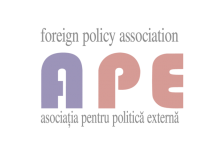APE staff
EU and Council of Europe to Boost Cooperation in Eastern Partnership Region. Visa- Free...
The Council of Europe and the European Commission have signed a new cooperation agreement to promote human rights, democracy and the rule of law in six Eastern European countries.
Moldovas Vote to Embrace Europe Puts the EU in the Hot Seat. By Victor...
On November 30, Moldova held a crucial parliamentary election, the results of which will determine the countrys future for years to come. Major political parties advocated not merely different policies, but diametrically opposite geopolitical options: an association agreement with the European Union or membership in the Russia-led Customs Union.
Some ministers of Leanca Government should be kept, opinions. Info Prim Neo.05.12.2014.
Some of the ministers who worked efficiently in the Leanca Government should be offered a post in the future Cabinet too so as to be able to continue the initiated reforms. Such opinions were presented in the program Moldova live” on the public TV channel Moldova 1, IPN reports.
European Commission’s support to the Republic of Moldova. EU MONITOR, 15.05.2014.
European Commission's support to the Republic of Moldova
The European Commission has met today the government of the Republic of Moldova, led by Prime Minister Leancă.
The meeting took stock of the latest developments in the Republic of Moldova, addressed both sides preparations to ensure that the future EU-Moldova Association Agreement delivers growth and stability up to its full potential, and reviewed the state of play with key reforms in Moldovas justice sector, business environment and energy relations.
Interview with Mr. Ion Sturza, ex Prime Minister of the Republic of Moldova: „It...
Mr. Sturza (53 years old) has started his political carrier in 1999 and became well-known for his nine-month running of the government. Although he withdrew from the political scene, many conationals would be in favor of his presidency in the county across the Prut River (Republic of Moldova și note of translator). As a business man his name surfaced in 2007. Mr. Sturza intermediated one of the largest M@A transactions in Romanian history, the sale of Rompetrol to KazMunaiGaz. He settled in Bucharest and is currently running an Investment Fund of his own, Fribourg Capital, which has a widely diversified portfolio with projects in the e-commerce, real estate, manufacturing and other industries. Throughout the years Ion Sturza managed to meet in person with the Worlds most prominent leaders, the ones that shaped the history over the last decades like Bill Clinton, Jacques Chirac and Tony Blair. He was also acquainted with Vladimir Putin.
Application open, Tbilisi Transformational Leadership Forum!!!
To be Launched in the first week of June 2014, the Tbilisi Transformational Leadership Forum (TTLF) is a 5-day lecture series that is hosted By the Georgian Institute of Strategic Studies (GISS) in Tbilisi, Georgia and is supported by the International Visegrad Fund.
Statement of Eastern Partnership Civil Society Forum on Russian military intervention in Ukraine. 04.03.3014.
EU should apply maximum diplomatic pressure on Russia to immediately withdraw military forces from Ukraine, and join with US to isolate Russia through tough trade sanctions if Russia does not comply
Statement of the Foreign Policy Association (APE) on condemning the Russian Federation Military aggression...
The Foreign Policy Association (APE) condemns firmly the armed attack of the Russian Federation in Ukraine, which represents a flagrant violation of the sovereignty and territorial integrity of our neighbor country.
Victor Chirila: APE Recommendations for Moldovas Reintegration Policy. APE. February 2014.
The big weakness of the Moldovan authorities on the Transnistrian dimension is the lack of a credible country reintegration policy that would be approved and supported by at least the ruling parliamentary majority. In our opinion, any State policy must have a set of essential elements, namely: a vision, a strategy and means of implementation, to be able to achieve the objectives. Thus, further we will analyse the given components, presenting the facts and highlighting their main weaknesses.
Lina Grau: APE Recommendations for Combating Discrimination in 2014. APE. February 2014.
2013 has been the year when the first steps in combating discrimination in the Republic of Moldova were undertaken, some difficult steps, especially for the newly elected members of the Council to prevent and liquidate the discrimination and ensure equality (hereinafter, the Anti-Discrimination Council or the CAD), which is the main entity both to combat and sanction discrimination and to promote non-discrimination within the society. It may be said that 2013 was largely devoted to some organizational issues, which enabled the creation and capacity building in the field of non-discrimination. Even if we cannot talk about some spectacular results at the public level, however, it was especially the second half of the year that marked an intense period of storage and organization of capabilities, while the results will be felt in 2014 and beyond.
Victor Munteanu: Recommendations for the MAI Reform in 2014 APE. February 2014.
After a series of unsuccessful attempts to reform the Ministry of Internal Affairs (MAI) in the context of various strategic initiatives and foreign or domestic policies, in 2013, the Republic of Moldova has made a decisive step towards the creation of a new police system, adjusted to the European requirements, when the functions of the MAI were separated from those of the police. Thus, the MAI is no longer a Ministry of the Police. It develops, evaluates and coordinates the implementation of the police policies. Policing, which is to maintain the public order, to prevent and combat criminal activity lies solely with the police. This separation of the police from the political sphere was made by a new Law on the Policing and Police Officer Status that was passed in 2012 and entered into force in 2013. Only after more than 20 years of independence and the creation of a state subject to the rule of law, the police gets rid of the status of "the armed body" and the substantive and formal elements that are deeply rooted in the legacy left by the Soviet militia.
Alexandru Cocirta: Recommendations to Reform the Prosecutor’s Office of the Republic of Moldova in...
Despite the stated interest to undertake a multidimensional reform of the Prosecutor's Office, few of the defined priority activities were carried out, while the initiated ones are at an early stage. Both the foreign monitoring and the domestic observers found deficiencies in respect of the promotion of initiatives aimed at reforming the Prosecutor's Office. Thus, the reform of the Prosecutor's Office has at present arrears as regards most of the chapters. However, certain actions, related to the overall reform effort, were implemented during the reporting period.
WEASA 2014 EDITION: Call for Participants
The College of Europe, Natolin Campus with the German Marshall Fund of the United States (GMF) and the Polish American Freedom Foundation are pleased to launch a call for participants for the second edition of the Warsaw Euro-Atlantic Summer Academy (WEASA). The main objectives of the Academy are presenting the political, social and economic foundations of modern democracies in the European Union and the transatlantic community and promoting them in the Eastern European countries.
Victoria Bucataru: the European Agenda of the Republic of Moldova: life after Vilnius. Russkiivopros.com....
After 22 years of independence, Republic of Moldova (R. Moldova) finally made its first real step towards a comprehensive and foreseeable foreign and domestic policy. The European agenda became one of the elements that guided the domestic reforms and mobilized the activities inside and outside the country. Without neglecting the still existing shortcomings, authorities as well as the civil society concentrated on putting into practice the EU și R. Moldova bilateral documents as to make the European course of the R. Moldova an irreversible one.
APE Activity Report Reporting period June – December 2013
APE Activity Report Reporting period June - December 2013







